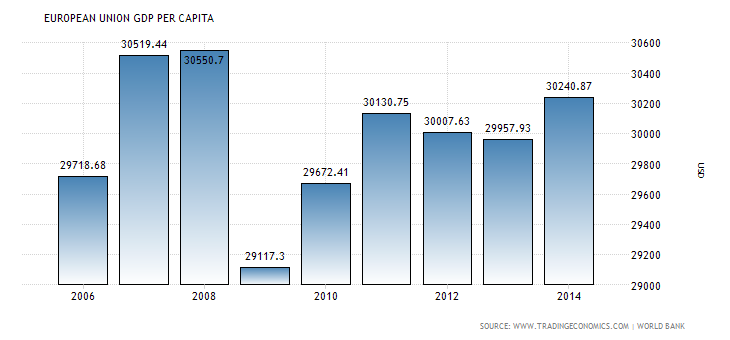Money Matters - July 25. 2016
Upcoming Events
Related News
The Brexit: The Spirit of 1776?
On June 23, 52 percent of voters in the four nations of the United Kingdom (England, Wales, Scotland and Northern Ireland) approved a referendum in favor of splitting from the European Union. This marked a stunning rejection of an economic and political alliance first embrace by the U.K. more than 43 years ago.
Although withdrawal will not occur for up to two years following formal notification of the European Council, financial markets began to sharply react to the decision late on the evening of June 23, even before vote totals were completely tallied. By the end of the following day, the British pound had plunged more than 10 percent, to just 1.33 pounds per U.S. dollar from 1.50 pounds the day before. Over the next two weeks, the British pound continued to drift down to levels not seen in more than 30 years.
Likewise, global equities markets experienced turmoil from the unexpected results. The FTSE 250, an index of the 101st to 350th largest companies on the London Stock Exchange, plunged more than 13 percent in a matter of days. Shockwaves were felt across the globe in a rout not experienced since the financial crises of 2008. Yet in the next two weeks, global markets surged back. In fact, the S&P 500 reached a new all-time high on July 8.
Just how much will “Brexit” affect the economy? Prior to the vote, the U.K. Treasury chief George Osborne predicted a 6 percent hit to the British economy should the referendum be approved. Time will tell if this prediction is correct. In reality, structural reforms across the United Kingdom could do far more good than relinquishing more sovereignty to Brussels.

Thanks in large part to stifling business regulations and bloated governments across the EU, economic growth across the region has hovered at 2 percent or less for the past five years of this Great Recession recovery era. Consider the threats to certain Uber services in Germany, France and Spain or the bloated government of Greece, which consumes 60 cents of every dollar of GDP (7th highest in the world). Fortunately, the U.K. has enjoyed a gradual improvement in economic freedom the past several years — and now ranks as the 10th freest in the world. This may be enough to allow the U.K. to outperform the remainder of the EU.
Here at home, the impact on the U.S. economy will likely be minimal. Although exports from the United States to the U.K. will likely fall thanks to a falling pound, total exports to the U.K of $56 billion account for just 3 percent of total U.S. economic output to start with.
The free flow of goods and capital contributes greatly to economic growth. Private property rights and the rule of law are also important components. Membership in the European Union certainly keeps encumbrances on international trade and investment between members at a minimum. However, many citizens of the United Kingdom have tired of the fiscal burden related to EU membership, the subjugation of national sovereignty to a maze of continental bureaucratic structures, and an overly meddlesome regulatory system imposed by the EU.
In reality, agreements permitting the mobility requisite for growth can be reached without entering a supranational accord. For instance, although the loss of unhindered access to the Common Market will prove a temporary challenge, the United Kingdom is already exploring the possibility of wide-ranging trade deals with the United States, Mexico, India, New Zealand, Australia and South Korea.
Perhaps the present-day citizens of the United Kingdom are embracing the spirit of another group of citizens from the same kingdom 240 years ago. The document authored by these brave colonists began with these words: ”When in the Course of human events it becomes necessary for one people to dissolve the political bands which have connected them with another…”
It’s up to the current generation to write the next segment of their history. May it be an even more prosperous chapter.
Attachments
Related News

Counties offer a second chance after incarceration
From job fairs and housing programs to educational opportunities, counties offer a second chance after incarceration.

County shines light on property deed history of racially restrictive covenants
The Durham County, N.C. Register of Deeds is using public records information and archival documentation to educate county residents on racially restrictive covenants in property deeds and how their impact can still be felt today.
